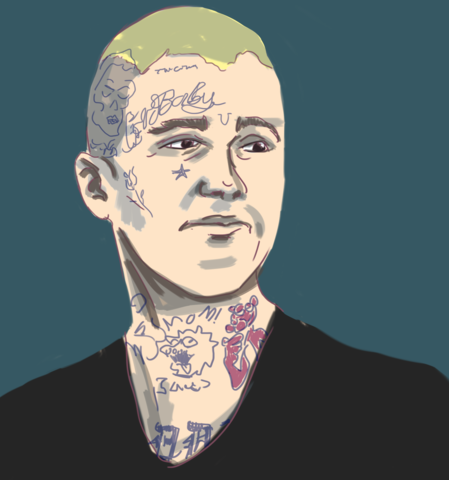Music has long been revered as one of the most authentic forms of self-expression — a medium that transcends written word. Music can evoke emotion, make one content, and demand introspection. It has served as a way for people of different backgrounds to share their past, present and, hopes for the future in a format that is palatable. Why is it then that the same art that supposedly heals is also accused of being such a detriment to young minds?
Amy Winehouse, Kendrick Lamar, Tupac Shakur and Kurt Cobain; all of these musicians, as well as countless more, share infamy in the media with careers tarnished by the bastardization of their lyrics to fit the tune of media witch hunts. Why are Willie Nelson and Bruno Mars not placed under the same scrutiny? Simply put, their images do not fit the media’s agenda of of drug or alcohol abusing individuals who are corrupting young minds with their ‘promotion of drug abuse’.
Musicians, of any creed or color, should not be under attack, because it is obvious that the message is reasonably consistent across genres; the only thing that changes is the listeners’ preference of how that message is presented. However, the message should not be attacked either; as censorship has long proven to not be an answer to any societal issues throughout time. That poses an important question; where, if any, is the most practical place to direct this dissatisfaction?
If reputable news sources were to investigate the situations, barriers and societal issues these musicians were born into, they might find some actual issues to address, such as rising depression rates in teens, or perhaps residual and continued socioeconomic health issues stemming from racism, and therefore have viable and concrete opinions to stand on. Instead of asking musicians and listeners to sheathe their need for escapism, which is asking them to deny their human nature, they should target what would make a musician or listener search for escapism.
Although the cause of this need for escapism is multifaceted, intricate and subjective, delaying conversations about mental health issues for the sake of media’s benefit is quickly becoming fatal. Recently, rapper Lil Peep died of an overdose on the sedative Xanax which is commonly used to treat anxiety and panic disorder.
On college campuses, Xanax consumption has shot up a staggering 450 percent since 1993. Usually, this would draw concern for the growth of anxiety and panic disorder among college students but pundits would rather discuss how rap music is causing the kids to do drugs.
We, as students of a university, are possibly in the most danger. What students see as a stress reliever becomes a gamble if one’s better judgment is inhibited, even for just a moment. The “drug problem” does not stem from the music; the music is the result of media and politicians refusing to have a serious conversation around one of the main causes of drug addiction — mental health. There is undoubtedly a drug problem in America, and it will only be perpetuated and continue spiraling out of control if reputable news sources continue to use every musician’s death as an opportunity what push what they think is an acceptable way to hear the same message.
Categories:
NBC killed the radio star
February 18, 2018

Illustration by Kennedy Swift | Staff Illustrator
0
Donate to The University Star
Your donation will support the student journalists of Texas State University. Your contribution will allow us to purchase equipment and cover our annual website hosting costs.
More to Discover







